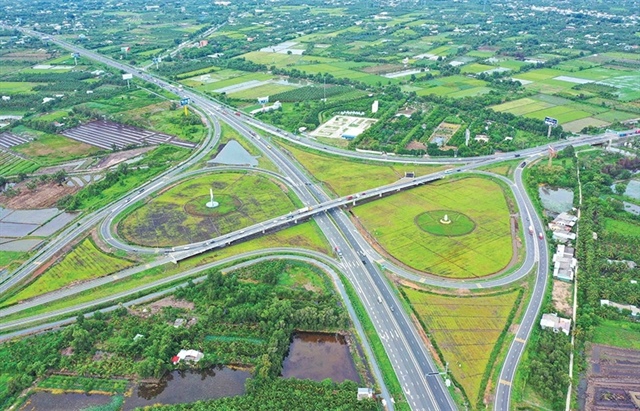After 20th anniversary of ties, Vietnam, U.S. discuss future in TPP age
After 20th anniversary of ties, Vietnam, U.S. discuss future in TPP age
The conclusion of negotiations for the Trans-Pacific Partnership (TPP) pact has marked a new milestone in Vietnam-U.S. ties and its coming ratification is expected to rapidly accelerate the Southeast Asian country’s economic growth in the years to come, experts said at a conference on Thursday.

Besides business and education opportunities, there will also be challenges for Vietnam, the least developed among the 12 economies party to the U.S.-led trade accord that was reached in October 2015, according to the pundits.
The event, titled “20 Years of U.S.-Vietnam Relations: Business & Education Opportunities in Light of TPP,” was held in Ho Chi Minh City by the U.S. Center for Strategic and International Studies and Vietnam’s Center for Strategic and International Development.
The international conference took place at a time when the two countries have completed the year-long celebration of 20 years of their diplomatic relations, and are looking forward to the decade ahead, with the official signing of the TPP due in the next few months, according to the organizers.
Vietnam and the U.S. restored ties in 1995, twenty years after their war ended.
The trade pact, which would liberalize trade in 40 percent of the global economy, is pending approval from legislative bodies of its members, including Australia, Brunei, Canada, Chile, Japan, Malaysia, Mexico, New Zealand, Peru, Singapore, the U.S. and Vietnam, before it can take effect.
Vietnam’s lawmaking National Assembly is expected to begin considering the pact in the middle of this year.
Dr. Evan S. Medeiros, former senior director for Asia with the U.S. National Security Council, asserted at the conference that the TPP will be ratified by the Congress within the first half of this year, rather than after the presidential election in November as widely thought.
“The TPP will allow Vietnam to expand cooperation with the world’s top partners, particularly the U.S.,” Le Thanh Liem, deputy chairman of the Ho Chi Minh City People’s Committee, said in his opening remarks.
In the meantime, Luong Hoang Thai, head of multilateral economic affairs at the Vietnamese Ministry of Industry and Trade, said Vietnam’s participation in the accord carries a message its government wants to send to the international community.
“It indicates Vietnam’s aspiration to improve the country’s business environment and create more conditions for foreign investors,” he said.
Thai added most of the TPP countries have experience in institutional reform, economic development and business environment improvement, which Vietnam can learn from.
Former Minister of Trade Truong Dinh Tuyen also said the strict requirements set by the TPP are the chance for Vietnam to carry out its institutional reform more drastically.
“As the least developed among the 12 TPP nations, it is crucial that Vietnam make many changes, even to the law, to meet the trade pact’s standards,” Tuyen said.
Many foreign experts have also shared their views about the prospective impact of the TPP on Vietnam.
Sherry Boger, general manager of Intel Products Vietnam, said the TPP accord will help Vietnam fulfill all of its trade commitments in the most serious manner, which will improve the legal compliance of the country as well.
Intel will focus on developing quality products following the TPP, she added.
Wendy Cutler, vice president of the Asia Society Policy Institute, recommended that Vietnam invest more in education, infrastructure, roads and seaports.
It is estimated that Vietnam needs at least US$30 billion to improve its infrastructure for economic growth, according to Cutler, who is also former Acting Deputy U.S. Trade Representative.
Cutler also asserted that Vietnam will pull off the biggest victory from the TPP compared to other party nations, as the trade pact will help the Southeast Asian country climb to a higher place in the global value chain and make higher value-added products.
Joyce Tran, director of procurement for Southeast Asia with Walmart, said the trade agreement will allow the largest retailer in the U.S. to both enter Vietnam and transfer technology and knowledge to local suppliers.
The technology transfer will enable Vietnamese suppliers to join the global value chain, she said, adding Walmart maintains a presence in the country because of the TPP.
The giant retailer is considering purchasing all kinds of goods in Vietnam, which it sees as a potential source of diverse products, she said.
Tran, however, noted that Vietnam lacks intermediate suppliers with analytical skills and strategic thinking, problems the country should try to solve in order to grasp the TPP opportunity.




















